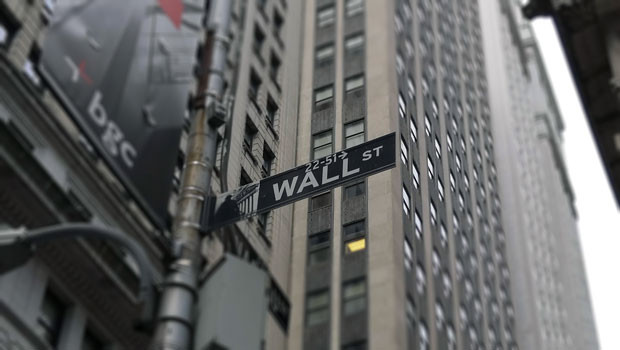US open: Stocks mixed following Fed rate decision

Wall Street trading got off to a mixed start on Thursday after the Federal Reserve indicated that it would soon begin an aggressive tapering of its bond-buying programme and signalled three interest rate hikes were on the horizon for 2022.
As of 1515 GMT, the Dow Jones Industrial Average was up 0.38% at 36,065.59, while the S&P 500 was down 0.01% at 4,709.23 and the Nasdaq Composite came out the gate 0.77% weaker at 15,445.10.
The Dow opened 138.16 points higher on Thursday, extending gains recorded in the previous session after the central bank said it would begin dialling back the pace of its asset purchases in January by purchasing just $60.0bn worth of bonds each month, down from $90.0bn in December, following recent inflation data that showed a 6.8% surge in November - much higher than expected by economists and the fastest print on record since 1982.
Market participants were also digesting policy decisions from the European Central Bank and Bank of England, with the ECB leaving rates unchanged as it said it would phase out its emergency bond-buying programme and increase other stimulus measures, while the BoE voted for a surprise increase in interest rates to 0.25% to stop inflation taking hold with prices rising faster than expected.
On the macro front, claims for unemployment benefits came in higher than expected in the seven days ended 11 December after having hit their lowest level since 1969 the week before. According to the Labor Department, initial jobless claimes totalled 206,000 last week, above estimates for a print of 195,000 and the previous week's upwardly revised total 188,000.
The four-week moving average, which levels out volatility in the numbers, came to 203,750, its lowest level since 15 November 1969, while continuing claims, which runs a week behind the headline number, declined 154,000 to 1.845m, its lowest reading since 14 since March 2020.
On another note, manufacturing activity in the US mid-Atlantic region slowed sharply at the end of 2021, even as supply chain pressures eased, according to the Federal Reserve Bank of Philadelphia's factory sector index, which slumped from a reading of 39.0 for November to 15.4 in December. Economists had forecast a drop to 27.0.
Elsewhere, housing starts increased 11.8% to a seasonally adjusted annual rate of 1.67m units in November, according to the Commerce Department, the highest level seen since March as an acute shortage of properties on the market somewhat offset higher prices for raw materials and labour shortage constraints. Permits for future home building increased 3.6% to 1.71m last month.
Still on data, industrial production increased 0.5% in November as output from US factories hit its highest level since January 2019, following an even larger 1.7% increase in October, according to the Federal Reserve.
Lastly, a flash reading of IHS Markit's manufacturing index revealed activity has decelerated to a one-year low in December, falling to a print of 57.8 in mid-December from 58.3 in November, the lowest reading seen since December 2020, but the report also seemingly indicated that there were signs that labour and raw material supply constraints at factories were beginning to ease.
In the corporate space, Adobe shares were in the red after the software firm issued 2022 earnings guidance that fell short of estimates, while FedEx and Scholastic will report after the close.
Also in focus, Delta Air Lines revealed that it was now expecting a fourth-quarter profit of $200.0m after having previously projected a loss.